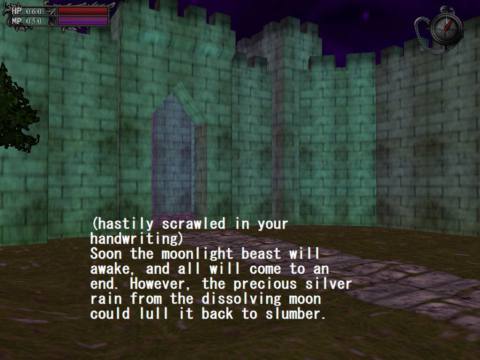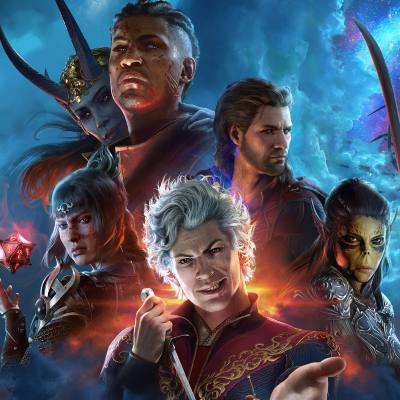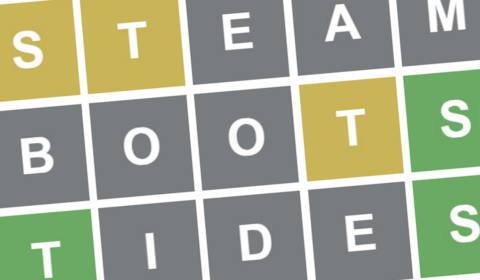It's been a good couple of years for soulslikes. Both Lies of P and Black Myth Wukong have continued to demonstrate just how far you can push this formula, adding smart new ideas, but transposing the fundamentals to an entirely new setting and mood. It's honestly the thing I love the most about this genre; how you can take this framework that players understand and use it as a vehicle to explore a new setting or mythology.
What is it? A soulslike based on Italian folklore
Release date September 16, 2024
Expect to pay $49.99/£39.69
Developer Jyamma Games
Publisher Jyamma Games
Reviewed on Windows 11, i5-12400F, 16GB DDR4 Ram, RX 6800 XT
Multiplayer No
Steam Deck Yes
Link Steam
For Lies of P that was a dark and moody adaptation of Pinnochio, a children's story from the 18th century, while for Black Myth Wukong it was Journey to the West, an even older Chinese novel from the 16th century. I'm not sure what it is about the soulslike genre that allows developers to adapt such varied source material, but for my part I think it's the perfect combo of something you know and something you don't—a familiar set of mechanics in a fresh, unfamiliar locale.
It's for that reason I was particularly excited to play Enotria: The Last Song, a soulslike rooted in Italian folklore. It's something I know very little about, but as with Black Myth Wukong, I was excited to receive a schooling while murdering bosses and exploring sunny mediterranean-inspired regions, albeit filled with dogs, traps, and all the usual soulslike accoutrements.
Sun-soaked shores
The first thing to say about Enotria is that, despite its faults, it's a very pretty game. Whether it's the decorative masks and carnival costumes you don as the Maskless One—what your character is known as—or the sandy beaches and rustic towns you battle your way through. It's an entirely unique vibe, and one I haven't seen in a soulslike before. I do think it's a bit lacking on the NPC side for its genre, and its map design feels quite linear for the most part, but each region has its own particular flavour.
I was pleasantly surprised when, in the second region, I found myself exploring ancient Greek ruins and fighting an army of cannon-wielding conquistadors. Even if the regular bosses can sometimes feel a bit samey, the main bosses at the end of each region are fun and thematic in terms of their visual design. The setting is definitely the strongest element of Enotria and if you're particularly into Italian folklore, you'll be in for a treat.
The main visual drawback with the game is how bad the motion blur can be, but luckily the devs recently added an option to turn it off since the demo, so I'd suggest doing that if you're particularly prone to noticing it.
Combat woes
Comparing Enotria to Lies of P or Black Myth Wukong wouldn't be fair considering this game was developed by a relatively small studio, but its asking price isn't that much less than both of those. It's important to know what you're getting, so I'm going to be straight—Enotria is pretty clunky in terms of gameplay. It's lacking that necessary combat flow that's so important for soulslikes in making you feel that you can master the system and become adept at it.
First off, combat is way too parry-centric. As with Sekiro, you build up a stagger meter on an enemy or boss by parrying their attacks and perform a critical strike when it's full. Unless you specialise heavily in mask lines—the game's ability system—90% of combat is standing in front of an enemy and parrying them, or maybe getting the occasional hit in if you have a fast-enough weapon.
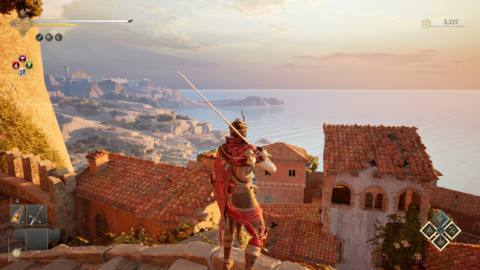
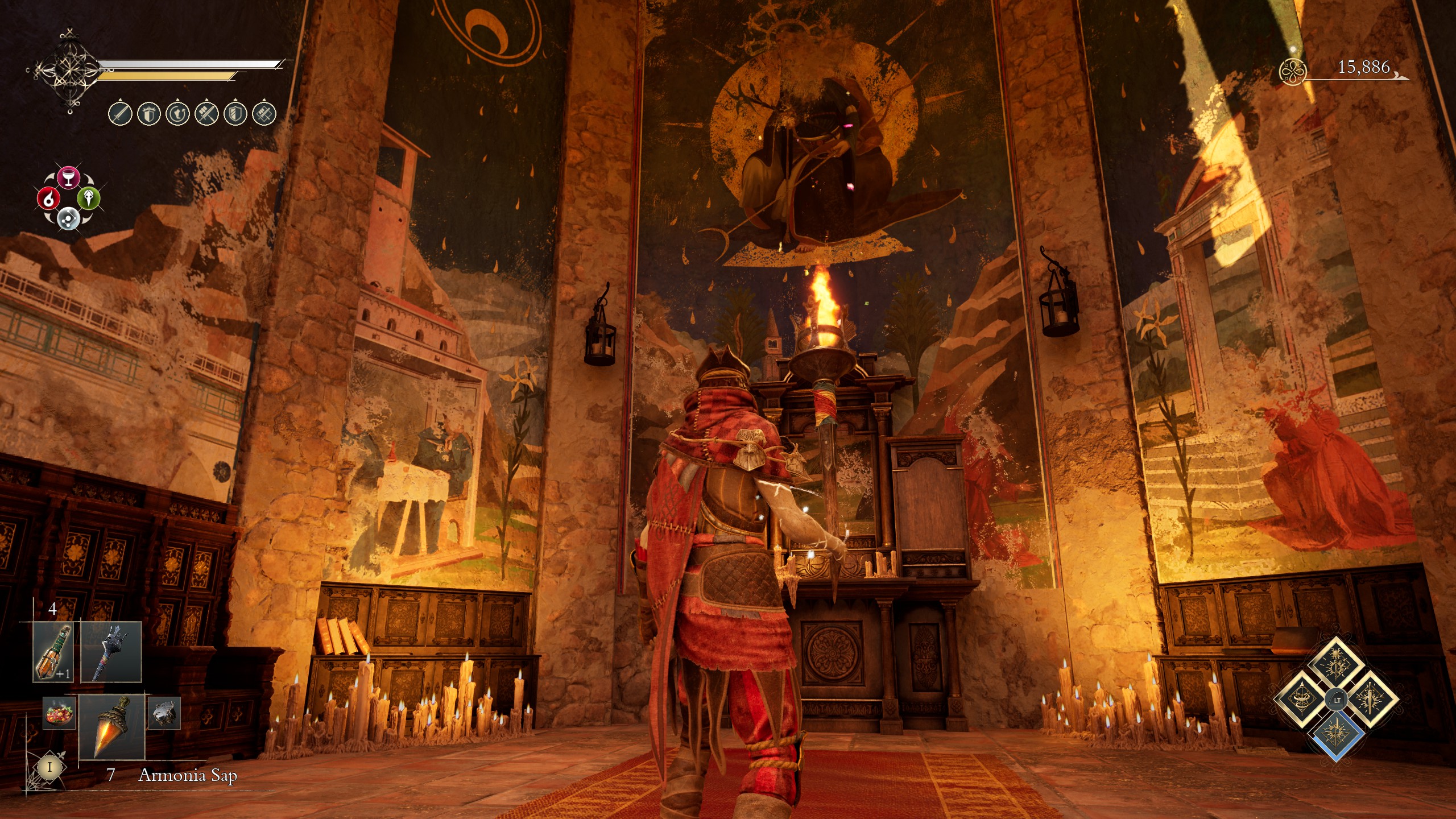
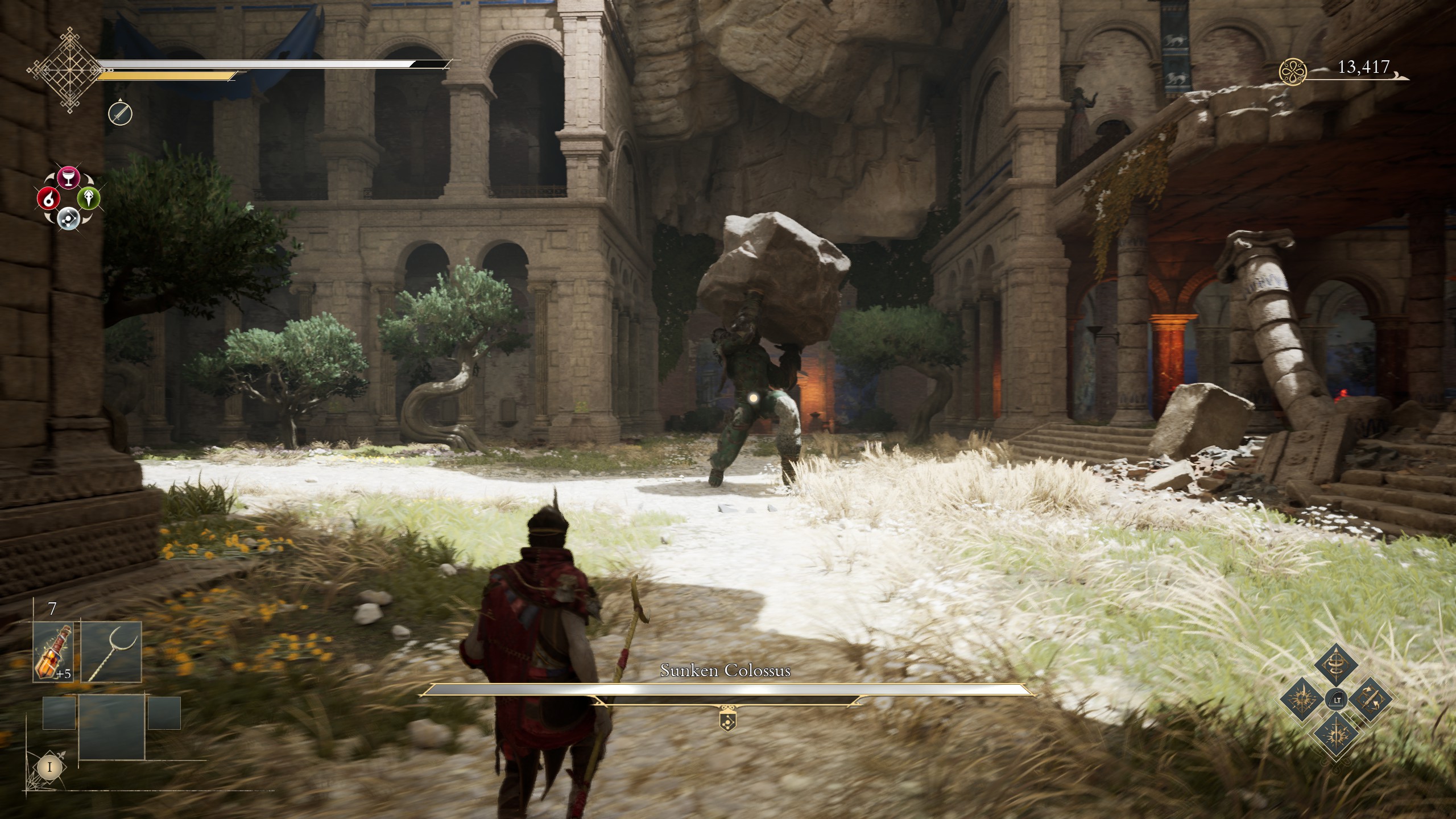
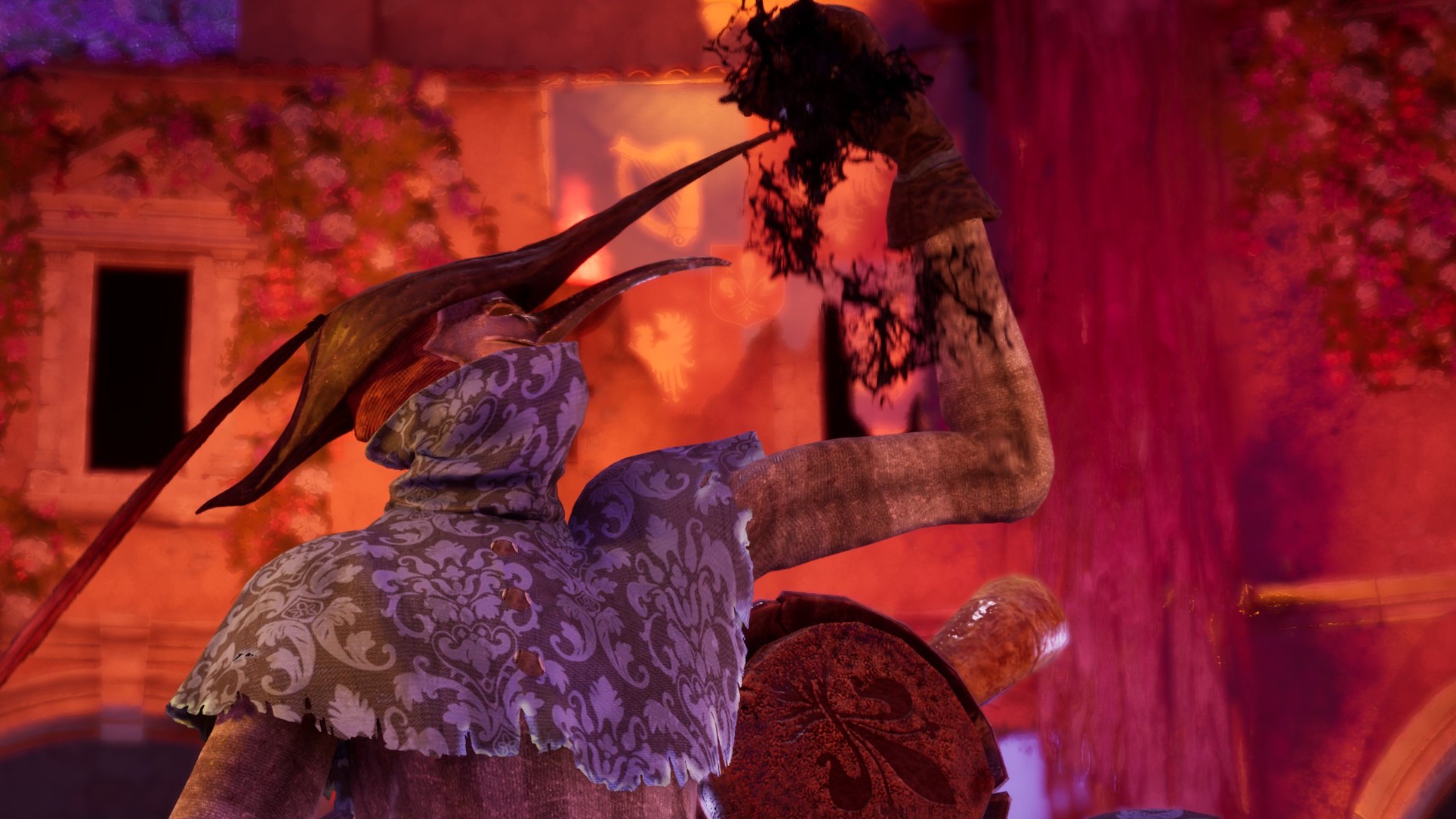
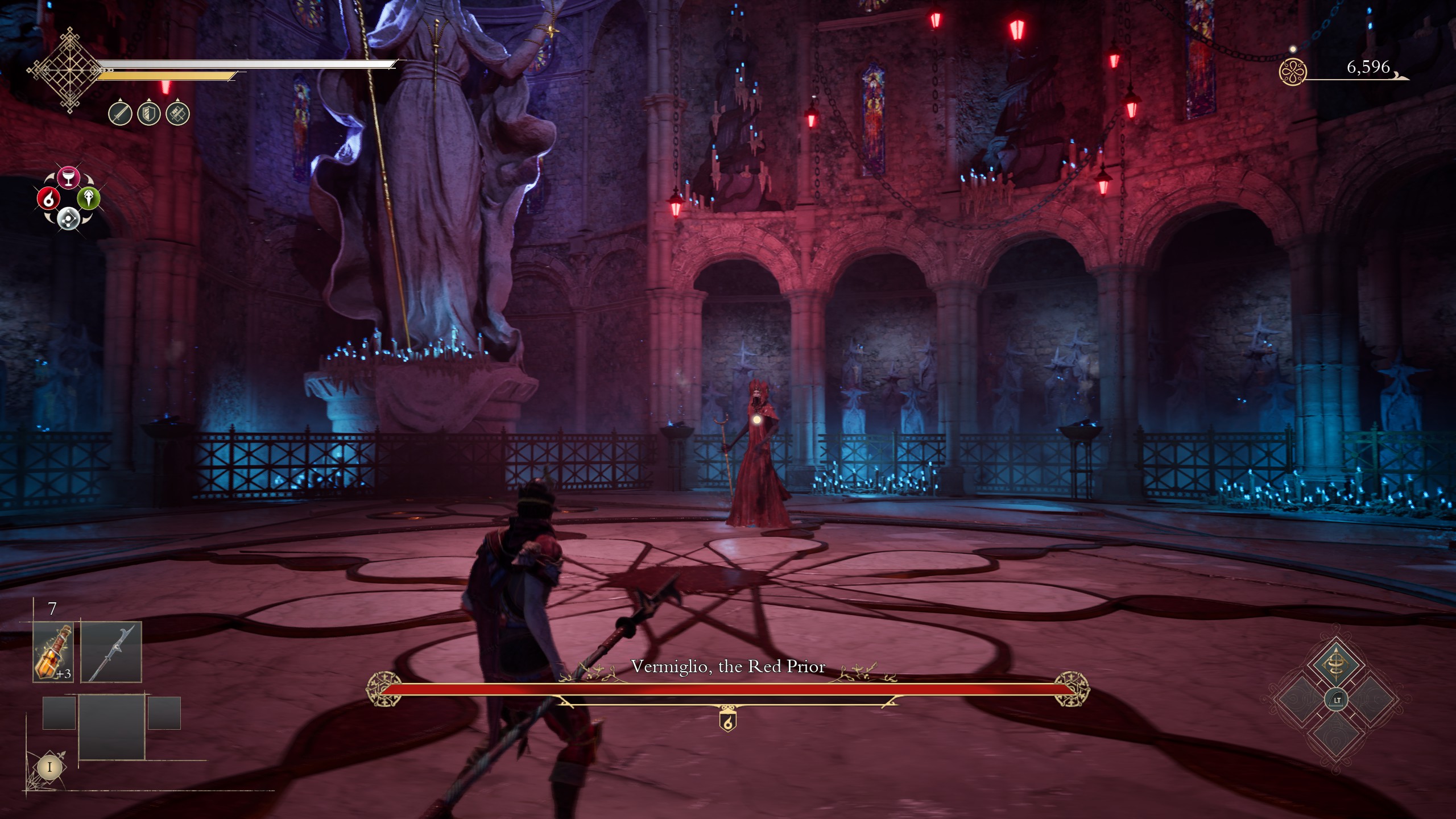
Weapon combos are simplistic and enemy attacks don't feel balanced towards the game's weapons. If you take a polearm or an ultra-greatsword, for example, you won't even have time to hit most enemies mid-combo, which means all you can do is sit there and parry the same attacks over and over again—enemies and bosses have very few attacks—until they're stunned.
Enotria lacks that necessary combat flow that’s so important for soulslikes in making you feel that you can master the system
Another poor aspect of combat is the almost Pokémon-esque element system. During your travels you'll encounter enemies or bosses of a particular element, either Vis, Fatuo, Gratia, Malanno, and you'll deal much less damage to them unless you use a weapon or mask line to infuse your weapon with the right element. The game gives you three loadouts you can switch between at will and two weapons for each in order to cope with this, but the system feels pointless to me.
Crafting your own build is a big part of the soulslike experience, so being forced to cover enemy elemental weaknesses with your weapons infringes on that freedom a bit, especially when it's an arbitrary system that doesn't really add much to the experience or enemy difficulty beyond plain tankiness. Builds should be about playstyle, not simply covering a specific damage type.
Playing your part
Another difficulty with Enotria is that it's very frontloaded in terms of its systems and mechanics, bundling them all right at the start of the game, then leaving you to fumble through using them in practice. You have the classic souls levelling system, but you also have Path of the Innovators: a tree of unlockable passive skills you can equip six of. These let you specialise towards combat, mask lines, and the weapon infusions you get by casting mask lines in specific slots.
There are aspects, too—similar to Great Runes from Elden Ring—which change your stat spread and grant a passive ability. And last but not least, you have masks. You acquire these by defeating bosses or gathering mask fragments from particular enemies. For the most part, these systems won't massively affect your playstyle—even masks mainly just provide a passive ability. Mask lines are what's most important.
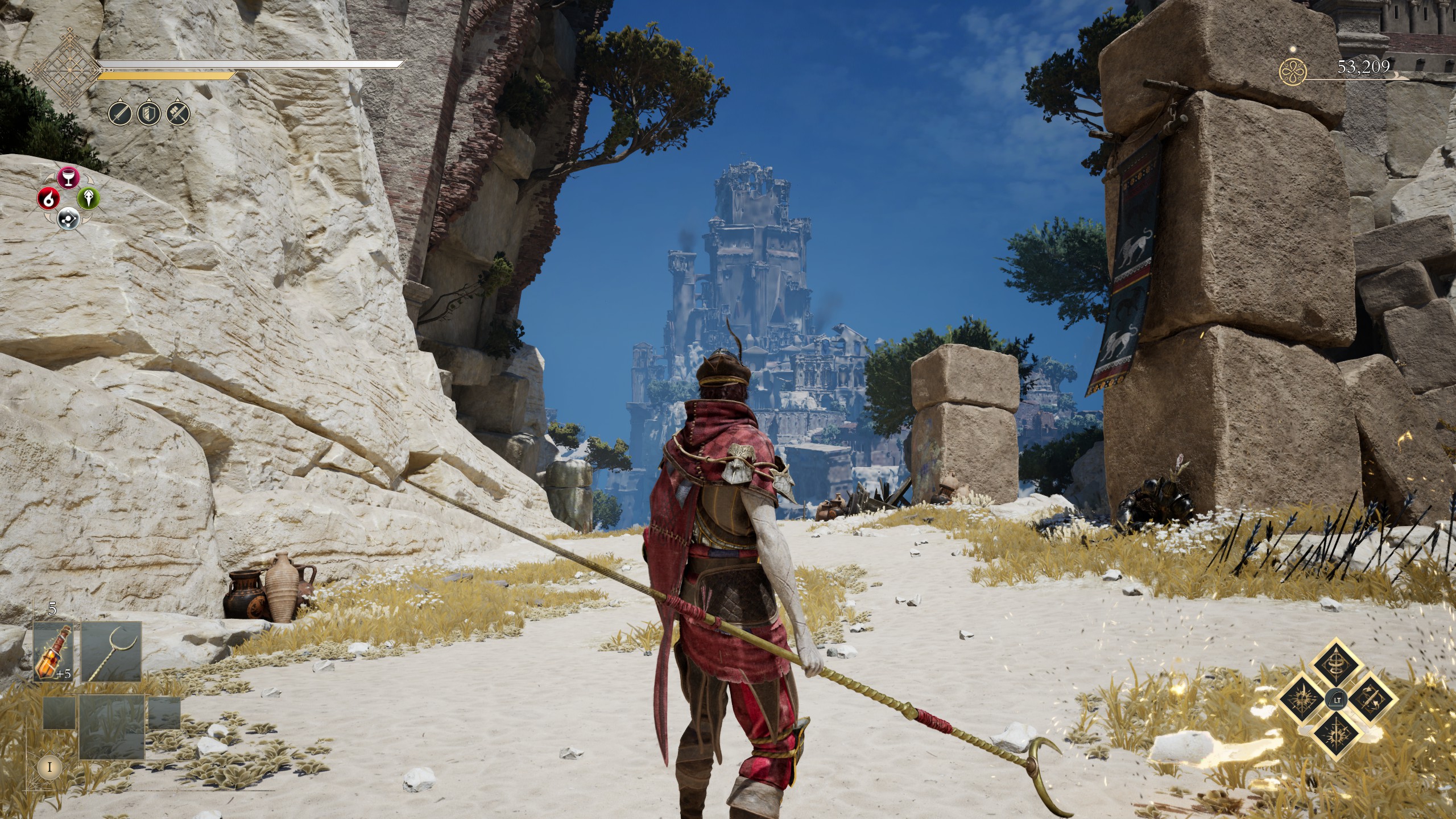
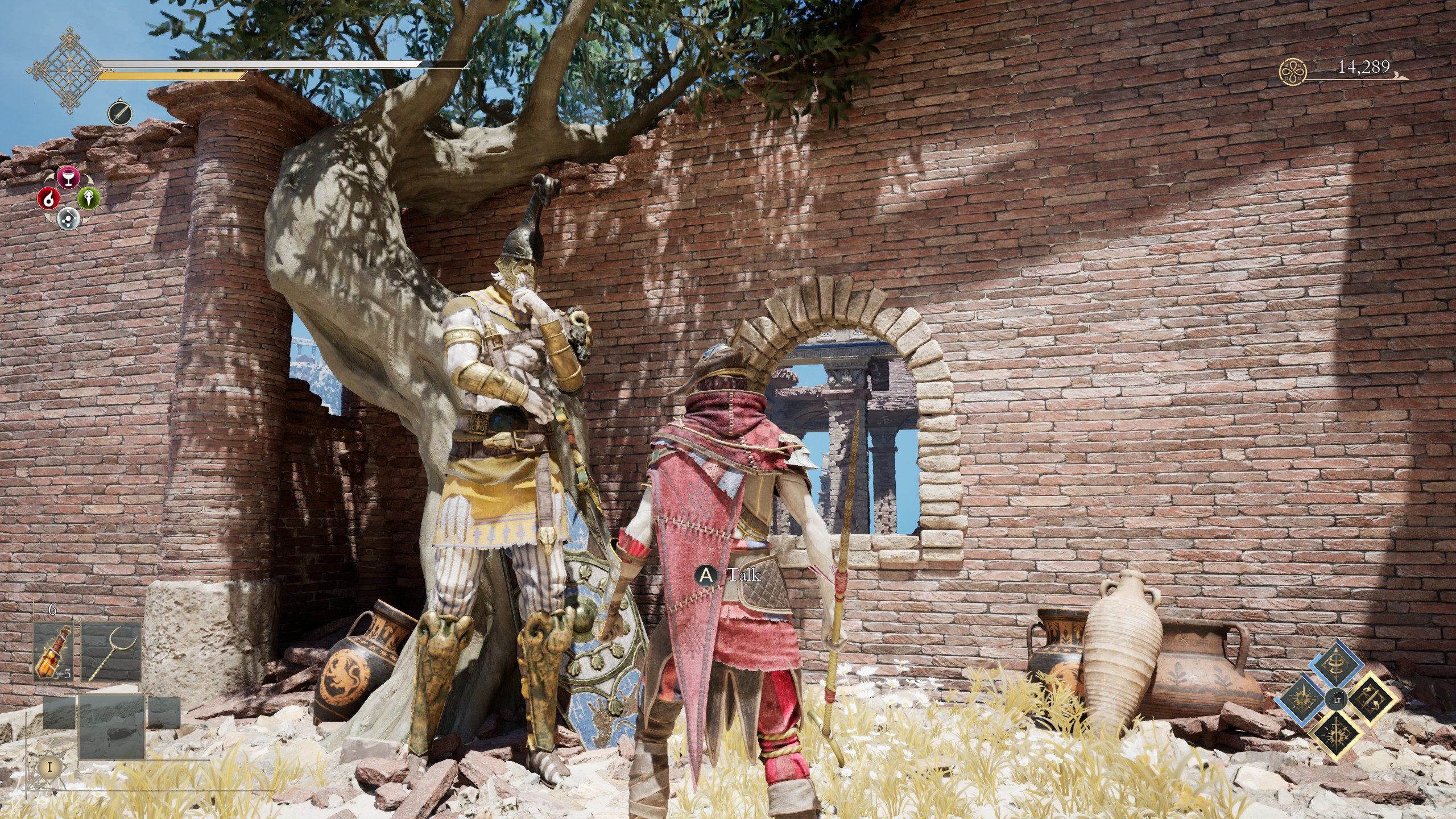
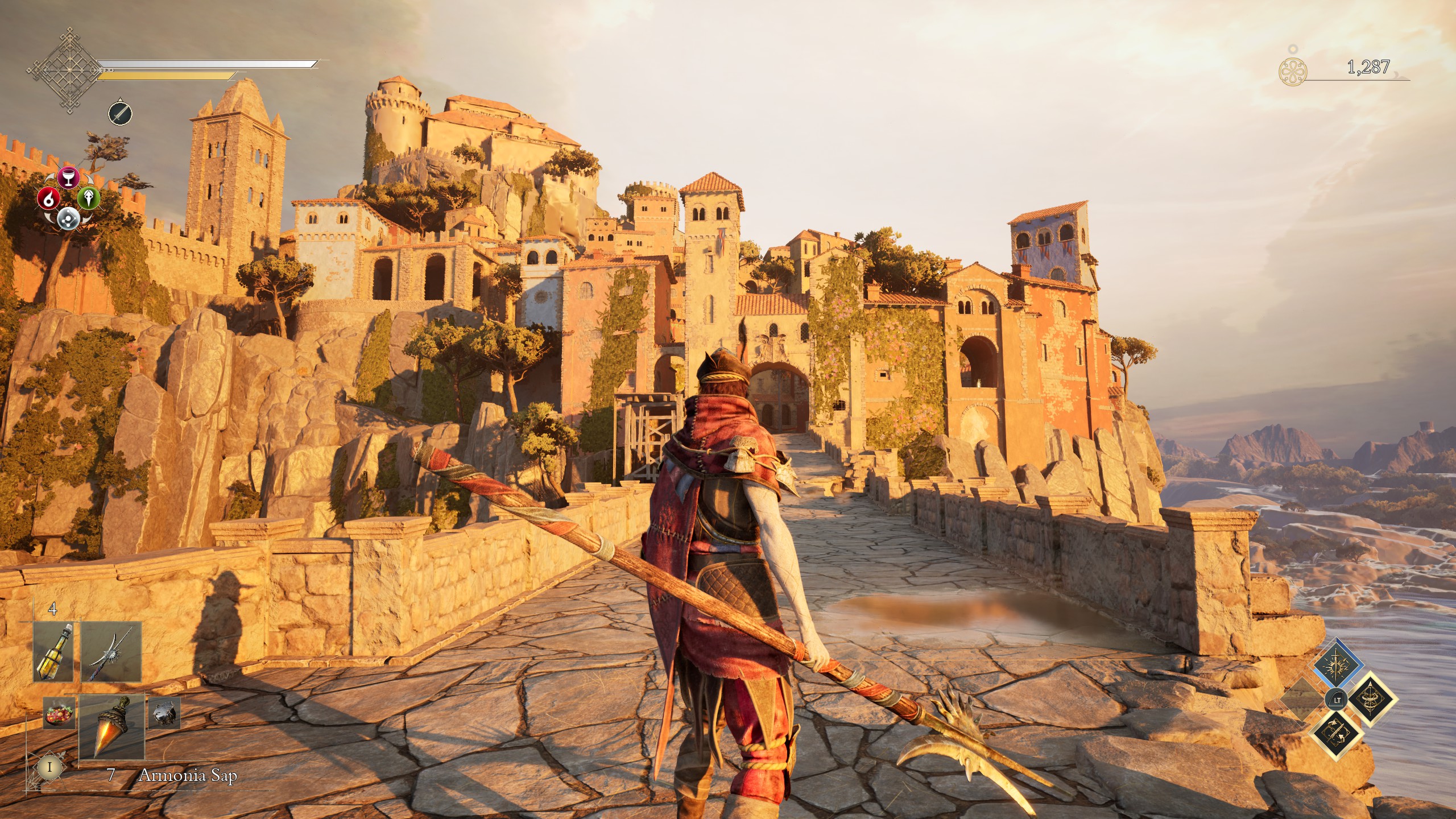
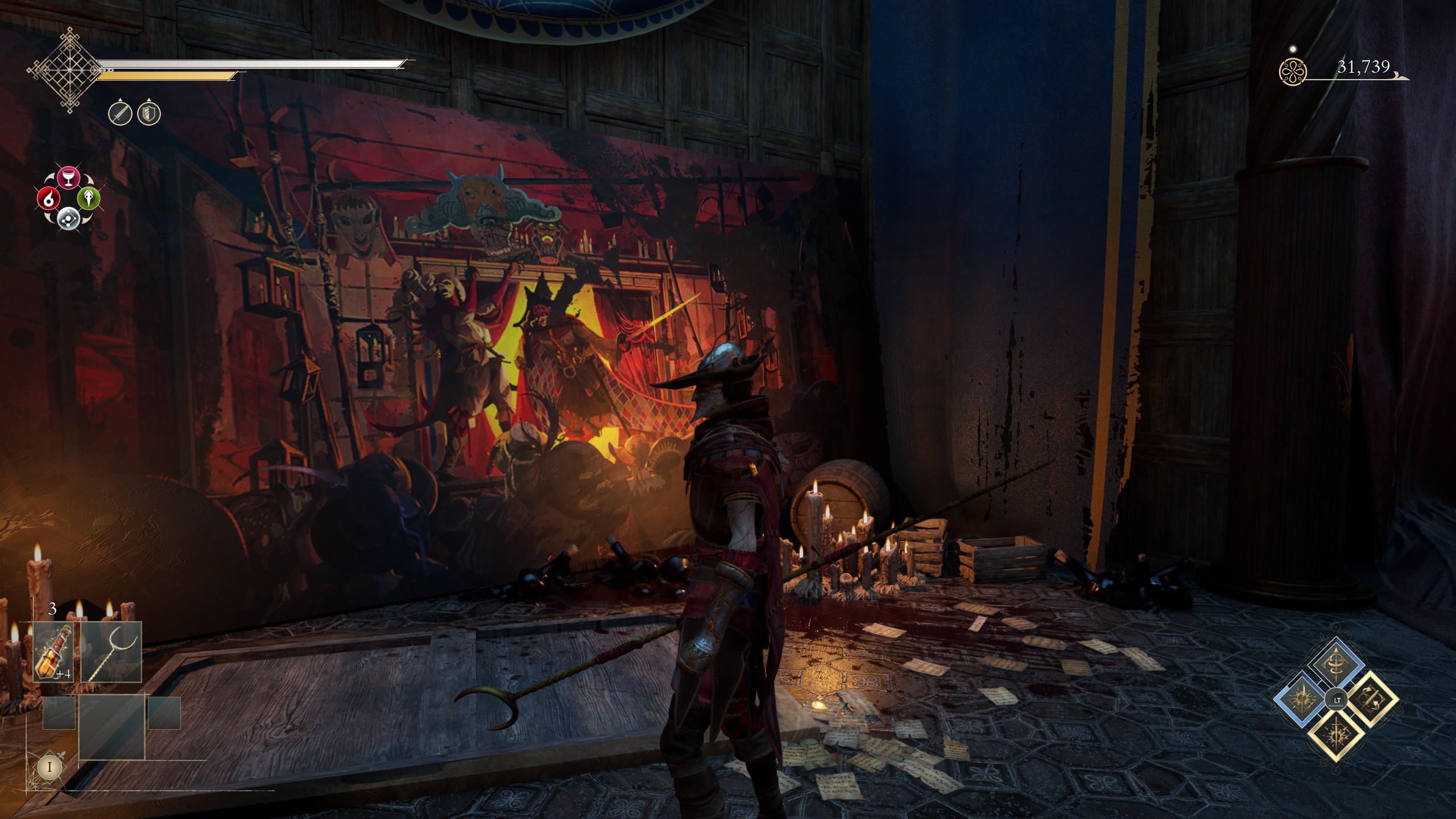
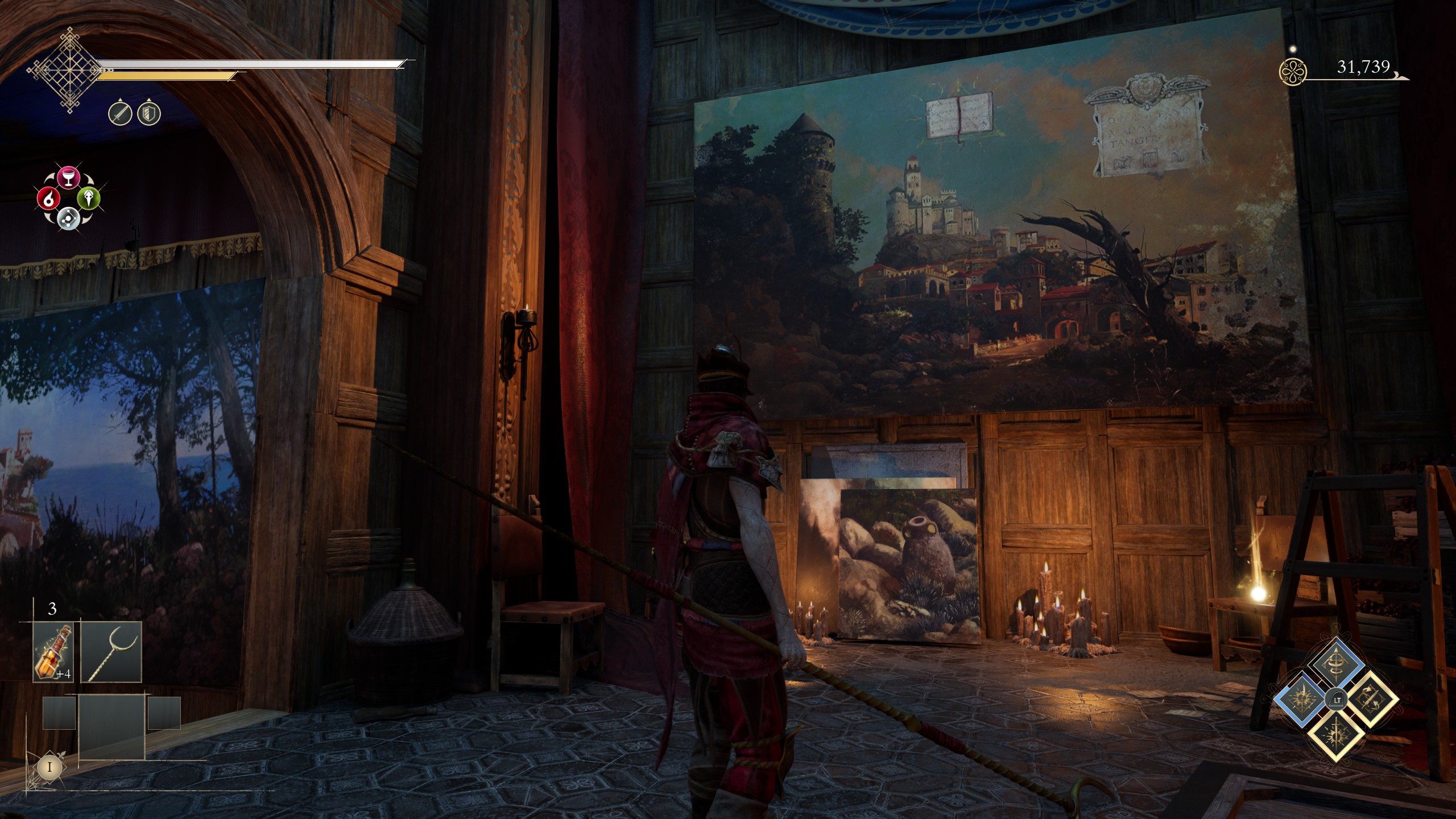
You have four mask line slots where you can equip these abilities, and as you explore the game, you'll find more. My primary issue with them is that they take quite a long time to charge via attacking enemies—though you can speed this up in the skill tree—and you very easily get stunned out of them during the casting animation, which exhausts that use. It means that if you are going to use mask lines at all, you need to develop a very precise understanding of how long they take to cast, otherwise they'll make you more vulnerable than simply parrying would.
Once I realised that I could easily be stunlocked out of mask lines by even basic attacks I stopped using them entirely and found that made the experience smoother than trying to remember the precise timings for casting the abilities. To be honest, it would be a far more functional system if you gained some level of anti-interrupt or hyper armour when using them.
Curtain call
Enotria is clearly a labour of love in terms of its setting, but that's what makes it frustrating when the experience doesn't quite add up. It feels like a game that would have benefited from early access or more time for player feedback and development, since it's so close to being something far better. Tweaks to weapon balancing, mask lines, enemy attack animations, hyper armour, and health would change a lot.
As it stands, though, Enotria lacks that factor I get when playing a smart soulslike, coming across some minor innovation or mechanic that suddenly makes me think “Wow, that's really clever!” or occasionally even mechanics I wish FromSoft would incorporate back into its games. The combat will certainly carry you through if you're invested in the setting, but the endless parrying, elemental system, getting stunned out of mask lines, and how hard it is to use slower weapons will likely grate on you. For me, at least, soulslike combat should feel like a second skin, and Enotria doesn't achieve that.


